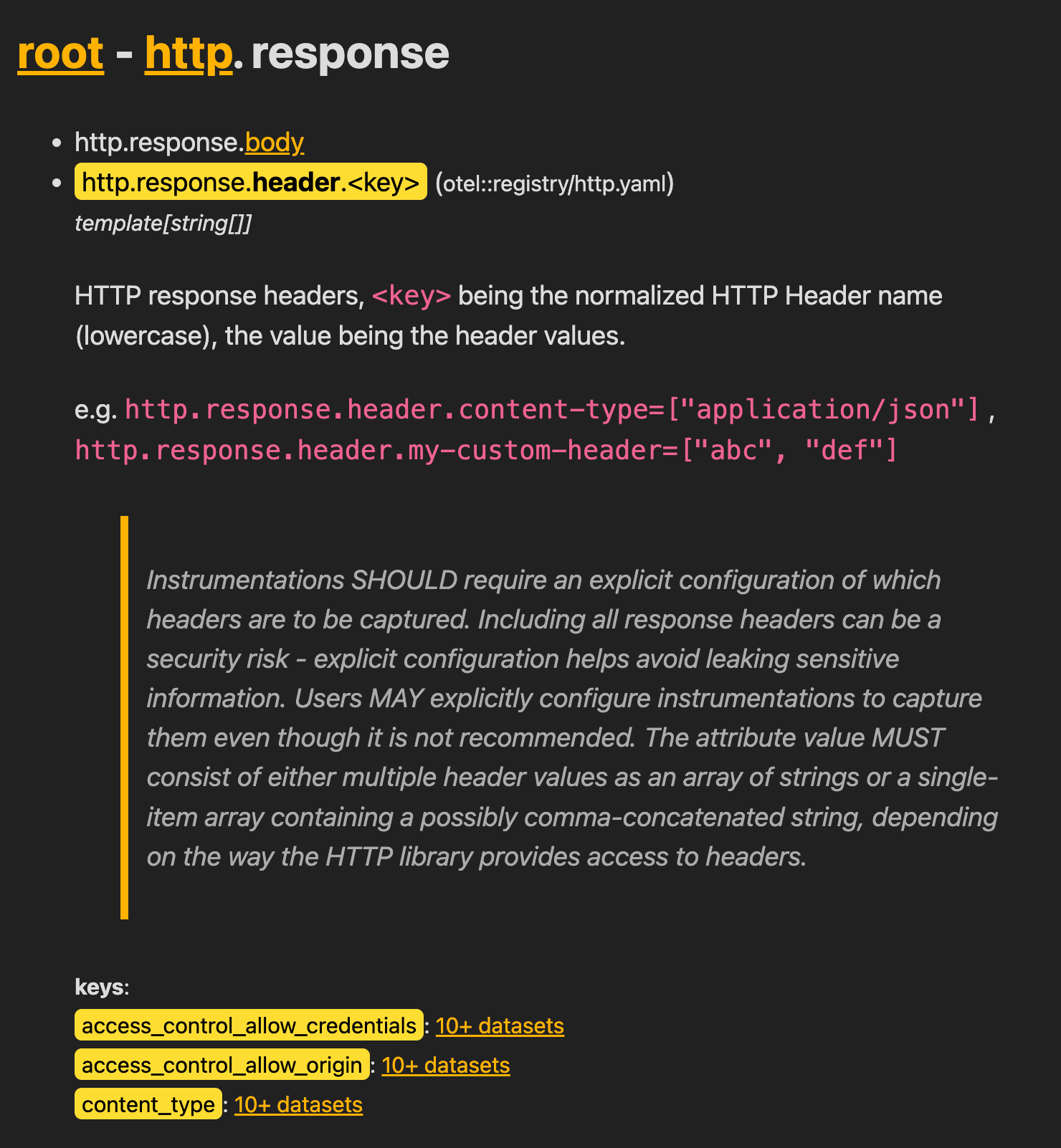OpenTelemetry Semantic Convention Template Type
Template Types are described in the syntax document as:
A template type attribute represents a dictionary of attributes with a common attribute name prefix.
The idea is that you may have a set of unknown key value pairs that belong to a common prefix. This is used for the stable semantic convention http.response.header.<key> for example.
In this case the <key> is the HTTP Header name and the value is the header values. This allows you to capture arbitrary headers with a well known prefix without them being defined beforehand.
The http.response.header.<key> type is defined as template[string[]] - this means: a template type with an array of strings as the value.
Template types are permissible for all the
primitive types, making the full set: template[string], template[int], template[double], template[boolean], template[string[]], template[int[]], template[double[]], template[boolean[]].
What this all means is you’ll see attributes like http.response.header.content_type = text/plain or http.response.header.access_control_allow_credentials = true in Honeycomb.
Tools
Honey Explore
The honey-explore tool has had support for template types since version 0.1.6:

At the bottom of the screenshot you can see the keys that honey-explore has discovered from the honeycomb datasets. Just like normal attributes there are links taking you to a live query in honeycomb showing the last week of data.
Honey Health
Since version 0.3.1 honey-health has had support for template types. There’s not much to see here but previously it would incorrectly treat the prefix like http.response.header as a normal attribute and therefore would incorrectly highlight http.response.header.content_type as a missing attribute.
Summary
You may be tempted to use template types to avoid explicitly defining a set of attributes. This is not the intention and if you do this you’ll be missing out on defining rich semantic information for your attributes. Template types should only be used where you need to represent a dictionary and don’t have prior knowledge of the complete set of keys.